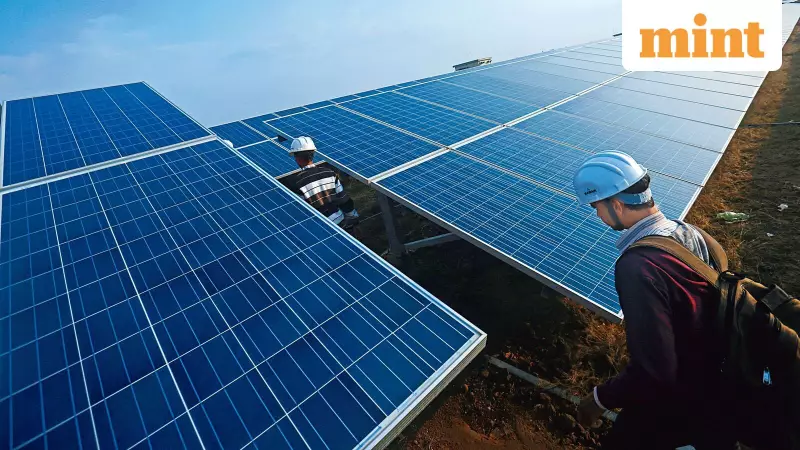
In a significant move within India's renewable energy sector, the Welspun World conglomerate, led by billionaire B.K. Goenka, is preparing for a major financial transaction nearly ten years after its last landmark deal. The group has appointed the global consulting firm EY to manage the sale of a majority stake in its clean-energy platform, Welspun New Energy.
The $100 Million Deal Structure
The proposed transaction carries an equity value of approximately $100 million, as confirmed by two individuals with direct knowledge of the development. According to one source, who requested anonymity, the formal sale process has already been initiated. The next phase will involve prospective investors signing non-disclosure agreements, after which they will receive the detailed financial model and information memorandum. Following management discussions, these investors are expected to submit their indicative proposals.
This strategic move comes close to a decade after Welspun World's historic sale of its entire 1.1 gigawatt (GW) renewable energy portfolio to Tata Power for $1.4 billion in 2016. The current initiative underscores the group's continued commitment to the evolving clean energy landscape.
Welspun New Energy's Robust Portfolio
The asset at the center of this deal, Welspun New Energy, boasts an impressive 1.2GW of contracted capacity. A substantial portion of this, amounting to 866 megawatts (MW), is secured through contracts with major state-run entities. These include NTPC Ltd, Solar Energy Corporation of India (SECI), and Gujarat Urja Vikas Nigam Ltd.
Beyond its operational portfolio, the company has an ambitious pipeline with 3.1GW of projects currently under development, all of which have already secured crucial transmission connectivity. This positions Welspun New Energy as a significant player in India's rapidly expanding renewable energy market.
India's Broader Clean Energy Context
This stake sale emerges against the backdrop of a substantial restructuring of India's green energy contracts. The Union power ministry has directed state-run procurers—including SECI, NTPC, NHPC, and SJVN—to cancel contracts where signing power purchase agreements (PPAs) and power supply agreements (PSAs) is no longer feasible by the end of November 2025.
India's renewable energy ambitions are monumental. The country currently has about 197GW of installed renewable energy capacity, with the government targeting an addition of 50GW annually to reach 500GW by 2030. Looking further ahead, national plans envision 1,800GW of renewable capacity by 2047 and 5,000GW by 2070 to align with India's net-zero commitments.
The investment climate appears increasingly favorable. According to the International Energy Agency's (IEA) World Energy Investment 2025 report, approximately 83% of power sector investment in India went to clean energy in 2024. Furthermore, India emerged as the world's largest recipient of development finance institution funding in 2024, receiving around $2.4 billion for clean energy generation projects.
Foreign direct investment (FDI) in India's electricity sector has doubled since pre-pandemic levels to reach $5 billion, with significant potential for further acceleration. The IEA estimates that India will need to invest $1.3 trillion in non-fossil power generation capacity by 2035 to remain on track for its energy transition goals.
This promising environment has attracted both domestic and global investors, as evidenced by several recent transactions. These include the planned acquisition of a 49% stake in green hydrogen manufacturer Hygenco Green Energies by IFC, Siemens AG, and Fullerton Fund Management, and Indian Oil Corp's renewable energy subsidiary Terra Clean Ltd's intention to acquire a 50% stake in Fourth Partner Energy Pvt Ltd in a deal valued at approximately $400 million.
Meanwhile, queries sent to a Welspun World spokesperson remained unanswered until press time, and an EY spokesperson officially declined to comment on the ongoing transaction.






